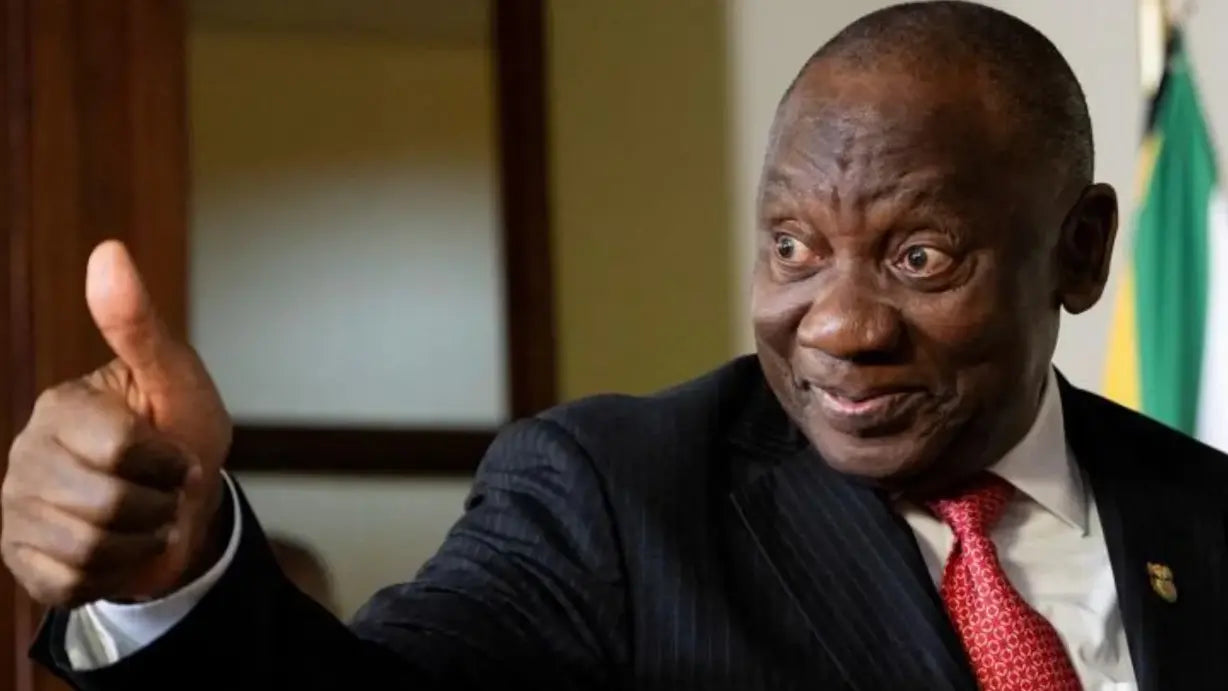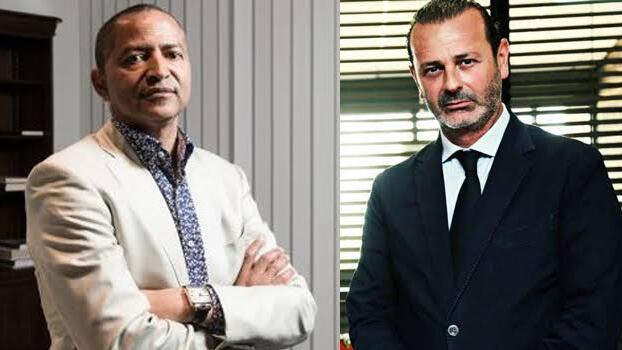
Ramaphosa out of reach: How South Africa's president dodged 'Farmgate' prosecution
South African President Cyril Ramaphosa has just avoided prosecution in the controversial "Farmgate" affair, a scandal that has tarnished his term in office. Accused of having covered up the theft of an astronomical sum of cash hidden on his private farm in Phala Phala in 2020, Ramaphosa sees the sword of Damocles move away. The decision of the national prosecutor's office not to prosecute him, however, has sparked mixed reactions. In a country plagued by corruption, many are wondering: does this decision mark a triumph of justice or a snub to South African democracy?
An investigation that collapses
The “Farmgate” affair exploded in June 2022, when a former security chief, Arthur Fraser, revealed that a sum of approximately $580,000 in cash had been stolen from Ramaphosa’s private residence, and that he had allegedly concealed the theft from the authorities to avoid embarrassment. The question that immediately arose was simple: what was such a sum of cash doing on a presidential farm? Worse, the circumstances of the theft, the failure to report it to the police and the allegations of torture of the suspects have fuelled the most sulphurous theories.
After months of investigation, the Director of Public Prosecutions (NPA) declared that there was insufficient evidence to bring criminal charges against Ramaphosa. The evidence collected did not warrant a trial, the agency said, and there was no substantial evidence of money laundering. The investigation has turned out to be a house of cards, but it is clear that South Africans are not digesting this conclusion with the same ease.
The problem is that beyond the evidence or lack thereof, this is also a matter of ethics and public perception. Ramaphosa’s political opponents and much of the public see this outcome as just another example of the two-tier justice system that continues to undermine the country.
Ramaphosa, the providential man or the untouchable man?
"Farmgate" has exposed the contradictions of President Ramaphosa. Having come to power in 2018 with the promise of fighting corruption, he has had to deal with a scandal that has tarnished the image of a leader once seen as the right man to turn around a country gangrened by the scandals of the Zuma era. The affair has deeply divided the ANC , the ruling party, and fueled internal tensions.
Some see this outcome as a return to the “normalcy” of a party that protects its own members, as it did in the past with Jacob Zuma. Others believe that the lack of prosecution of Ramaphosa only confirms the oligarchic drift of the South African justice system, which seems reluctant to take on the powerful. In short, for many South Africans, Ramaphosa remains guilty, not on the basis of the evidence, but because the president is seen as a symbol of a corrupt elite that continues to prosper at the expense of the people.
Ramaphosa, for his part, has always maintained that he had nothing to reproach himself for. According to his version, the stolen money came from the sale of game from his farm, an explanation that has not been enough to convince everyone. By refusing to resign in the face of calls from the opposition, he has played the perseverance card, hoping that time will eventually erase the suspicions. It is likely that this non-prosecution will strengthen his political position in the short term, but in the long term, the affair will continue to haunt him, especially in view of the 2024 elections where his image will be a central issue.
Selective justice, the scourge of South African democracy
“Farmgate” is a reminder of a deep-rooted problem in South Africa: the idea that justice is not applied equally to everyone. When it comes to the common man, punishments are swift and relentless; when it comes to the powerful, proceedings drag on, evidence “disappears” and cases drag on. There are many precedents, and the case of Jacob Zuma remains emblematic. Zuma’s corruption prosecution dragged on for years, despite overwhelming evidence.
The Ramaphosa case is likely to leave a bitter taste in the mouths of South Africans, for whom this dismissal could be seen as an abandonment of the principles of transparency and integrity on which the president had built his reputation. The message sent is clear: the rules that apply to you are not necessarily the same for those who govern. This institutionalised impunity risks further weakening public trust in the justice system and government.
The decision not to prosecute Ramaphosa could also have broader political implications. Voters tired of successive scandals and poor governance could turn to opposition parties, such as the Economic Freedom Fighters (EFF) or the Democratic Alliance (DA), which have already begun to use the case as leverage to attack the ANC ahead of the next general election.
After “Farmgate”: rehabilitation or eternal suspicion?
Ramaphosa can breathe for now, but the Farmgate affair will leave an indelible mark on his career. For many, the dismissal is a sign of his continued influence on South African institutions. For others, it is a mere respite from a political career now marred by doubt. In 2024, when voters go to the polls, the shadow of Farmgate will undoubtedly loom large, and it will be difficult for the president to escape lingering questions about his integrity.
South Africans will have to decide whether they are prepared to forgive a president who promised to be a champion of the fight against corruption, but who has found himself navigating the murky waters of "Farmgate". The courts may have ruled, but public opinion seems far from having delivered its verdict.



Leave a comment
This site is protected by hCaptcha and the hCaptcha Privacy Policy and Terms of Service apply.